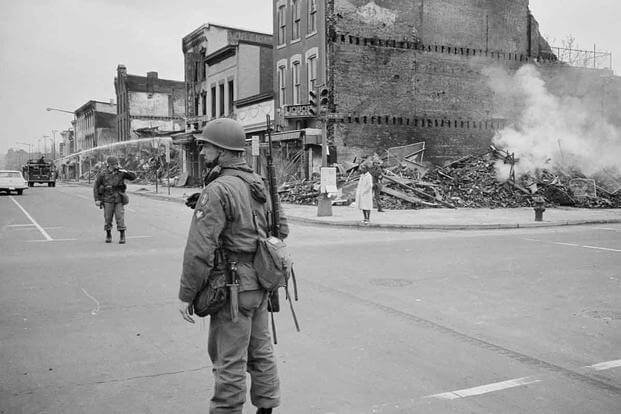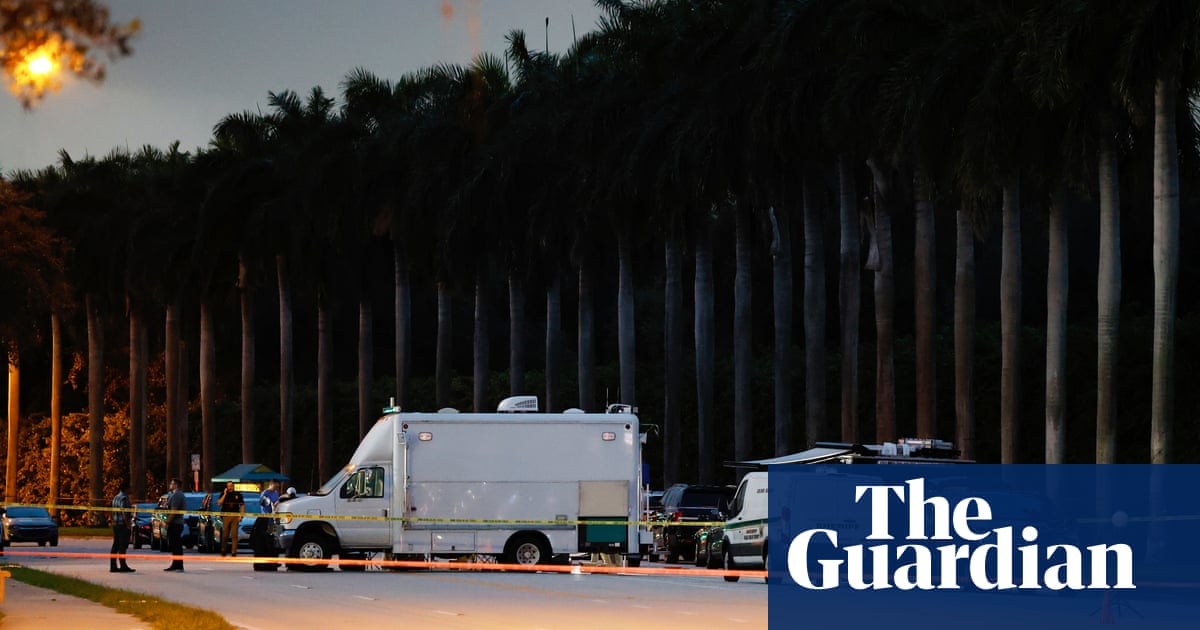- Reaction score
- 6,140
- Points
- 1,260
Part 1 of 2
Peter D. Feaver, Professor of Political Science and Public Policy at Duke University and the author of Thanks for Your Service: The Causes and Consequences of Public Confidence in the U.S. Military and Heidi Urban, Professor of the Practice at Georgetown University and the author of Party, Politics, and the Post-9/11 Army, worry, in Foreign Affairs, about President Trump and the US Military:
As former U.S. President Donald Trump takes another run at the White House, many observers worry about how his second term could shape civil-military relations. The Constitution enshrines civilian control over the military, but this relationship has at times been fraught. During Trump’s first term, senior military leaders, both active and recently retired, helped talk the president out of his most dangerous ideas. Critics of the Trump administration were grateful for the way these officers served as the “adults in the room,” but Trump’s supporters, and Trump himself, believe that the military thwarted him from accomplishing all that he wanted to do.
Trump has made it clear that he won’t let that happen again. If he is elected in November, the United States will face a serious test of its system of civilian control over the armed forces. Trump has, for instance, said he would fire the “woke generals at the top” if reelected and that he would consider using the National Guard and the active-duty military to perform sweeping deportations of undocumented migrants. Trump’s impact on civil-military relations is likely to be far greater and more corrosive than it was during his first presidency because he has gained a better understanding of how he can push the military to do his bidding and is more likely to surround himself with officials who fall in line.
Indeed, the conditions are ripe for Trump or future presidents to upset the balance of civil-military relations. A recent Supreme Court ruling that granted presidents considerable immunity from prosecution could encourage Trump to act more recklessly. Trump himself has expressed the desire to use the military in irresponsible ways, breaking with norms that have long guided the military’s deployment and use. Americans must learn—as so many other peoples around the world have—that the military by itself cannot save democracy from a reckless president.
Regardless of what the immunity ruling means for the president, it changes nothing for the armed forces on a legal level. The military is still required to follow lawful orders and to resist unlawful ones. Moreover, presidential immunity is not conferred down the chain of command. Even if a president cannot be prosecuted for issuing a dubious order to the military, military officials who implement an unlawful order can and should be held accountable through the Uniform Code of Military Justice, the law that governs the conduct of service members.
The immunity ruling does, however, damage civil-military relations because it could embolden presidents to test the boundaries of unlawful orders. Commanders in chief may now feel less constrained in their decision-making and may pressure the U.S. military to act in ways contrary to democratic norms and traditions. Moreover, the way that presidents transmit policy and instructions to the military—the “regular order” system—is designed so that the military can presume that orders from the president through the chain of command are legal and must be implemented. It is not the case that the military assumes all orders are illegal until proven otherwise by a team rendering a second opinion. Should a president issue an unlawful or potentially unlawful order, the military would face intense pressure from the administration to carry it out before opposition coalesces in the legislative or judicial branches. The immunity ruling thus introduces more doubt and confusion into the regular process of transmitting and receiving orders.
Other misunderstandings about the military’s obligations could compound the negative effects of the immunity ruling. Some senior officers mistakenly believe that the military is obligated to resist orders that are unethical or immoral. In reality, the military should resist only overtly illegal orders. It is not within their purview to determine whether an order is immoral or unethical. Members of the military are certainly guided by professional ethics, but they have limited moral autonomy—much less than the American public probably thinks they do. In many cases, an order may be unethical and immoral but ultimately legal, and the military is obligated to follow it (after letting political leaders understand their concerns). Some senior military officers, for example, opposed President Franklin Roosevelt’s order to intern Japanese Americans during World War II and communicated their disagreement to Roosevelt, but they couldn’t refuse to carry out the order because the Supreme Cour truled it legal. These lawful but awful orders are more likely to emerge if presidents, emboldened by their own sense of impunity, increasingly test the limits of their power.
Many presidents have used the armed forces for missions that involve law enforcement, which may be legal but put the military in a situation for which they are inadequately trained. What Trump and his team want to do (and what Trump wanted to do in spring 2020) is not unprecedented. President Warren Harding deployed the army to put down striking miners in West Virginia in 1921 and President Dwight Eisenhower sent troops from the 101st Airborne Division to Little Rock, Arkansas, to enforce school desegregation in 1957. President George H. W. Bush invoked the Insurrection Act to deploy soldiers and marines to manage the riots in Los Angeles after the Rodney King verdict in 1992, at the request of California’s governor.
In almost every case, the operations were fraught, and the regular military hoped never to have to do it again. Members of the regular military are, in general, not well trained to carry out police work, and the public doesn’t like it when they do. Research by Jessica Blankshain, Lindsay Cohn, and Danielle Lupton shows that Americans prefer that the police rather than the military respond to political protests. And the military might fracture if its members are directed to use force against their fellow Americans in response to domestic partisan frictions—that is neither what service members signed up for nor what they are trained to do. The active-duty force is less experienced than the National Guard in responding to civil disturbances, creating the potential for mistakes in a pressure-charged environment. Such a deployment would also cause public confidence in the military to plummet and could also harm the military by exacerbating recruitment and retention problems in an all-volunteer force. In the worst case, deploying the military in a nakedly partisan fashion could cause fissures within the rank and file and perhaps even split the military itself along partisan lines.
The Insurrection Act is poorly written and gives an extraordinary amount of discretion to the president. It is doubtful the courts would block the president from invoking it to deploy troops to quash demonstrations within the United States. The president would be on shakier legal ground if he were to use the army to round up and deport undocumented immigrants. Such a move would invite political backlash and a number of court challenges and would erode cohesion within the army. It would not, however, change the bottom line: the U.S. military would be obligated to follow the order unless the courts intervened decisively.
Even though the military is obligated to disobey an unlawful order, it is easier said than done. There is little precedent in the United States to draw from. Any commander would probably want reassurance from legal authorities that the order is indeed invalid before refusing to follow it, but he could receive contrary legal guidance from general counsels at the White House and the Department of Defense. If one office says the order is legal and the other disagrees, military officials might opt to follow the legal advice they prefer. If that advice rubs against the president’s wishes, a civil-military crisis may emerge. A determined president could replace an officer who defied an order with one more pliable, or even fire officers en masse until he found someone unscrupulous enough to carry out the unlawful act. Although military officers understand that they must resist unlawful orders, they would do so at considerable personal risk.
End of Part 1
Peter D. Feaver, Professor of Political Science and Public Policy at Duke University and the author of Thanks for Your Service: The Causes and Consequences of Public Confidence in the U.S. Military and Heidi Urban, Professor of the Practice at Georgetown University and the author of Party, Politics, and the Post-9/11 Army, worry, in Foreign Affairs, about President Trump and the US Military:
----------
Don’t Ask the U.S. Military to Save American Democracy
Why the Armed Forces Would Struggle to Rein In Trump
By Peter D. Feaver and Heidi Urben
September 13, 2024As former U.S. President Donald Trump takes another run at the White House, many observers worry about how his second term could shape civil-military relations. The Constitution enshrines civilian control over the military, but this relationship has at times been fraught. During Trump’s first term, senior military leaders, both active and recently retired, helped talk the president out of his most dangerous ideas. Critics of the Trump administration were grateful for the way these officers served as the “adults in the room,” but Trump’s supporters, and Trump himself, believe that the military thwarted him from accomplishing all that he wanted to do.
Trump has made it clear that he won’t let that happen again. If he is elected in November, the United States will face a serious test of its system of civilian control over the armed forces. Trump has, for instance, said he would fire the “woke generals at the top” if reelected and that he would consider using the National Guard and the active-duty military to perform sweeping deportations of undocumented migrants. Trump’s impact on civil-military relations is likely to be far greater and more corrosive than it was during his first presidency because he has gained a better understanding of how he can push the military to do his bidding and is more likely to surround himself with officials who fall in line.
Indeed, the conditions are ripe for Trump or future presidents to upset the balance of civil-military relations. A recent Supreme Court ruling that granted presidents considerable immunity from prosecution could encourage Trump to act more recklessly. Trump himself has expressed the desire to use the military in irresponsible ways, breaking with norms that have long guided the military’s deployment and use. Americans must learn—as so many other peoples around the world have—that the military by itself cannot save democracy from a reckless president.
AWFUL BUT LAWFUL
In July, the Supreme Court delivered a ruling that threatens the relationship between civilians and the military. It ruled in Trump v. United States that former presidents are immune from prosecution for “official acts.” Many legal minds, including the Supreme Court justice Sonya Sotomayor, worry that the decision might allow presidents to compel the military to engage in illegal activity. In her dissent, Sotomayor concluded that the majority opinion all but guarantees that a president would be immune from prosecution for ordering SEAL Team Six to assassinate a political rival. (Chief Justice John Roberts dismissed her concern as “fear mongering on the basis of extreme hypotheticals.”)Regardless of what the immunity ruling means for the president, it changes nothing for the armed forces on a legal level. The military is still required to follow lawful orders and to resist unlawful ones. Moreover, presidential immunity is not conferred down the chain of command. Even if a president cannot be prosecuted for issuing a dubious order to the military, military officials who implement an unlawful order can and should be held accountable through the Uniform Code of Military Justice, the law that governs the conduct of service members.
The immunity ruling does, however, damage civil-military relations because it could embolden presidents to test the boundaries of unlawful orders. Commanders in chief may now feel less constrained in their decision-making and may pressure the U.S. military to act in ways contrary to democratic norms and traditions. Moreover, the way that presidents transmit policy and instructions to the military—the “regular order” system—is designed so that the military can presume that orders from the president through the chain of command are legal and must be implemented. It is not the case that the military assumes all orders are illegal until proven otherwise by a team rendering a second opinion. Should a president issue an unlawful or potentially unlawful order, the military would face intense pressure from the administration to carry it out before opposition coalesces in the legislative or judicial branches. The immunity ruling thus introduces more doubt and confusion into the regular process of transmitting and receiving orders.
Other misunderstandings about the military’s obligations could compound the negative effects of the immunity ruling. Some senior officers mistakenly believe that the military is obligated to resist orders that are unethical or immoral. In reality, the military should resist only overtly illegal orders. It is not within their purview to determine whether an order is immoral or unethical. Members of the military are certainly guided by professional ethics, but they have limited moral autonomy—much less than the American public probably thinks they do. In many cases, an order may be unethical and immoral but ultimately legal, and the military is obligated to follow it (after letting political leaders understand their concerns). Some senior military officers, for example, opposed President Franklin Roosevelt’s order to intern Japanese Americans during World War II and communicated their disagreement to Roosevelt, but they couldn’t refuse to carry out the order because the Supreme Cour truled it legal. These lawful but awful orders are more likely to emerge if presidents, emboldened by their own sense of impunity, increasingly test the limits of their power.
CALL IN THE TROOPS?
Should Trump become president, he may try to push the boundaries by deploying the military within the United States. Of course, using the military domestically for humanitarian work after natural disasters is familiar and uncontroversial. But in June 2020, the president wanted to use troops to put down Black Lives Matter protests in Washington, DC. (According to former Defense Secretary Mike Esper, Trump asked his advisers whether the armed forces could “just shoot [the protesters] in the legs or something.”) On the campaign trail, he has repeatedly indicated he would use not only the National Guard but also active-duty military troops to quell protests, conduct mass deportations of undocumented migrants, and fight crime within the United States. Since 1878, the Posse Comitatus Act has held that the military cannot be used for law enforcement purposes unless expressly authorized by Congress or the Constitution. But in practice, Posse Comitatus has not been very restrictive, in part because Congress has authorized loopholes. One workaround is the Insurrection Act of 1807, a controversial law that gives the president broad authority to use military force on U.S. soil.Many presidents have used the armed forces for missions that involve law enforcement, which may be legal but put the military in a situation for which they are inadequately trained. What Trump and his team want to do (and what Trump wanted to do in spring 2020) is not unprecedented. President Warren Harding deployed the army to put down striking miners in West Virginia in 1921 and President Dwight Eisenhower sent troops from the 101st Airborne Division to Little Rock, Arkansas, to enforce school desegregation in 1957. President George H. W. Bush invoked the Insurrection Act to deploy soldiers and marines to manage the riots in Los Angeles after the Rodney King verdict in 1992, at the request of California’s governor.
In almost every case, the operations were fraught, and the regular military hoped never to have to do it again. Members of the regular military are, in general, not well trained to carry out police work, and the public doesn’t like it when they do. Research by Jessica Blankshain, Lindsay Cohn, and Danielle Lupton shows that Americans prefer that the police rather than the military respond to political protests. And the military might fracture if its members are directed to use force against their fellow Americans in response to domestic partisan frictions—that is neither what service members signed up for nor what they are trained to do. The active-duty force is less experienced than the National Guard in responding to civil disturbances, creating the potential for mistakes in a pressure-charged environment. Such a deployment would also cause public confidence in the military to plummet and could also harm the military by exacerbating recruitment and retention problems in an all-volunteer force. In the worst case, deploying the military in a nakedly partisan fashion could cause fissures within the rank and file and perhaps even split the military itself along partisan lines.
The Insurrection Act is poorly written and gives an extraordinary amount of discretion to the president. It is doubtful the courts would block the president from invoking it to deploy troops to quash demonstrations within the United States. The president would be on shakier legal ground if he were to use the army to round up and deport undocumented immigrants. Such a move would invite political backlash and a number of court challenges and would erode cohesion within the army. It would not, however, change the bottom line: the U.S. military would be obligated to follow the order unless the courts intervened decisively.
Even though the military is obligated to disobey an unlawful order, it is easier said than done. There is little precedent in the United States to draw from. Any commander would probably want reassurance from legal authorities that the order is indeed invalid before refusing to follow it, but he could receive contrary legal guidance from general counsels at the White House and the Department of Defense. If one office says the order is legal and the other disagrees, military officials might opt to follow the legal advice they prefer. If that advice rubs against the president’s wishes, a civil-military crisis may emerge. A determined president could replace an officer who defied an order with one more pliable, or even fire officers en masse until he found someone unscrupulous enough to carry out the unlawful act. Although military officers understand that they must resist unlawful orders, they would do so at considerable personal risk.
End of Part 1








